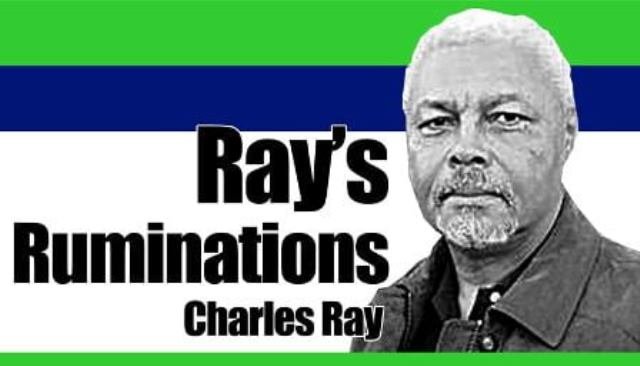
Many, too many, people spend a fair amount of their time chasing fame and fortune. And I’m not just talking here about the celebrities you see in the movies or on TV—although, my thoughts on the matter apply to them as well.
It has always amazed me, this maniacal pursuit of more; more money, more material possessions, more notoriety. It becomes such a quest for some people they lose sight of everything else. Family, friends, even their own spiritual development, are flushed down the drain as they try to ‘keep up with the Joneses,’ or even worse, ‘one up’ them.
I once had a colleague who was so consumed by the desire to ‘better’ everyone around him, to compete for the attention of our higher ups, that he completely lost sight of what he was actually supposed to be doing and ended up with his career in tatters within a few years. The sad thing about this one particular friend is that while I remember many of the incidents I sometimes have to struggle to recall his name.
The fact that this happened brings me to the present and some thoughts I’ve had on life and what its meaning is. Jim Grant, a former neighbor of mine with whom I spent many an hour with in my garage playing the oriental game of Go and discussing the meaning of life as we played, once said that no matter how wealthy or famous you might become in life, the real legacy you leave behind is how people remember you.
Sounds kind of simplistic and a bit maudlin, doesn’t it? But, think about it a minute. How many people who are no long with us do you remember clearly? Now, ask yourself, is it because they were rich, handsome, or incredibly intelligent? Or do you remember them because of how they affected your life, either positively or negatively?
One of the people that I have the most detailed memories of, for example, is my first high school homeroom and English teacher, Paulyne Evans. I entered her classroom in 1958 as a 13-year-old freshman, two years younger than my next younger classmate, having been bumped up a grade in school, and so traumatized by the experience that the first week of my freshman year, I was unable to speak in front of the class. Paulyne took it as a challenge to help me get over my phobia and, from that day, we were friends—despite the difference in our ages—until she died at the age of 96 in 2016. Except locally, she wasn’t famous, and having devoted most of her life to teaching in a poor segregated school system until our local schools were integrated in 1967, when she became one of the most popular teachers in the newly integrated school until her retirement in 2002, she was never rich, although, with her education and drive, she could have left rural East Texas and done quite well for herself.
Had she done that, though, it’s very doubtful if I would remember her. I struggle to recall the names of any of the other teachers I had growing up, some of whom did finally—like I did—escape the pine-covered hills of East Texas and do well for themselves. She didn’t. She stayed to help the kids born in a town of 715 people get a good education and better their lives.
But, I remember her. In some of the books I’ve written on leadership, in addition to my memoir I Believe I Can Touch the Sky, I have mentioned her. I’ve told my grandchildren stories about her and mentioned her to students I’ve taught.
Her memory will live on as long as I’m alive, and if I’ve done the right things, perhaps even beyond my existence as part of the memory that people have of me.
That’s a true legacy. Not the wealth and possessions that you leave behind, and not your notoriety, because someone will always come along to try and top whatever you might have done. How you’re remembered by the young people you encounter, though, now that’s a legacy worth striving for. – NWI




